Search Results
Showing results 1 to 20 of 36
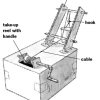
Heavy Lifting: Design Squad
Source Institutions
In this engineering challenge, learners design and build a crane out of cardboard to see how heavy a load it can lift.

Mold Growth
Source Institutions
In this activity learners observe mold growth on different types of bread by measuring and recording the growth rate.

Dunking the Planets
Source Institutions
In this demonstration, learners compare the relative sizes and masses of scale models of the planets as represented by fruits and other foods.
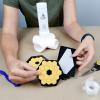
Exploring the Universe: Pack a Space Telescope
Source Institutions
Space telescopes can offer us better, clearer views of the universe (and of our own planet) than Earth-based telescopes can, but getting these large, delicate pieces of equipment into orbit is tricky.

Capturing Homemade Microgravity
Source Institutions
This activity (page 2 of the PDF under SciGirls Activity: Microgravity) is a full inquiry investigation into how ordinary things behave in microgravity, similar to what astronauts experience.

Radar Mapping: What's in the Box?
Source Institutions
In this activity, learners mimic remote sensing. Learners use a stick to measure the distance to a "planet surface" they cannot see, and create their own map of the landscape.
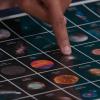
Exploring the Universe: Space Guess Quest
Source Institutions
Space Guess Quest is a fun game that encourages participants to identify the many types of objects in space, from human-made spacecraft to nebulas, galaxies, stars, and worlds.
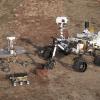
Rover Races
Source Institutions
In this activity, learners experience some of the challenges of "tele-operating" a robotic vehicle on another planet when they design and execute a series of commands to guide a human "rover" through
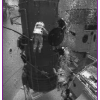
Weighty Questions
Source Institutions
In this activity about humans and space travel (page 1 of PDF), learners compare and contrast the behavior of a water-filled plastic bag, both outside and inside of a container of water.
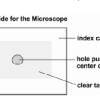
Making Regolith
Source Institutions
This lesson will helps learners answer the question: How does the bombardment of micrometeoroids make regolith on the moon?
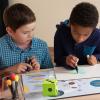
Exploring the Solar System: Mission to Space Board Game
Source Institutions
In this tabletop board game, players will represent a team of scientists and engineers sending a spacecraft on a mission to space.
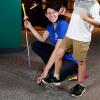
Exploring the Solar System: Stomp Rockets
Source Institutions
In "Exploring the Solar System: Stomp Rockets," participants learn about how some rockets carry science tools—not scientists—into space, and how a special kind of rocket called "sounding rockets" can
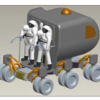
Cooling Off
Source Institutions
In this activity, learners are introduced to challenges of maintaining temperatures while living in space.
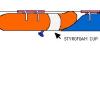
Balloon Staging
Source Institutions
In this activity, learners simulate a multistage rocket launch using party balloons, fishing line, straws, and a plastic cup.
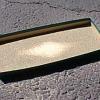
X-Ray Spectra
Source Institutions
In this activity, learners use simple materials to simulate the effect of X-rays in a safe way. Learners place a piece of window screen over a box and a cardboard pattern on top of the screen.
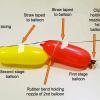
Achieving Orbit
Source Institutions
In this Engineering Design Challenge activity, learners will use balloons to investigate how a multi-stage rocket, like that used in the Interstellar Boundary Explorer (IBEX) mission, can propel a sat
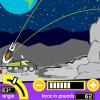
Planetary Rescue Squad
Source Institutions
This is an online Flash game where learners can experiment with ballistics and how to compensate for the varying levels of gravity found on the planets of our Solar System.
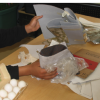
Exploration Vehicles
Source Institutions
Using recycled materials, learners will design a transportation vehicle to carry an egg in an egg toss (a rudimentary model of a shock absorbent transport vessel).
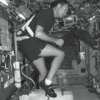
Challenge: Microgravity
Source Institutions
In this activity about the circulatory system and space travel (on page 38 of the PDF), learners use water balloons to simulate the effects of gravity and microgravity on fluid distribution in the bod
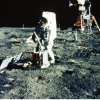
Planet Exploration Mission
Source Institutions
In this activity, learners design a scientific exploration mission to a planet or moon of their choice.
